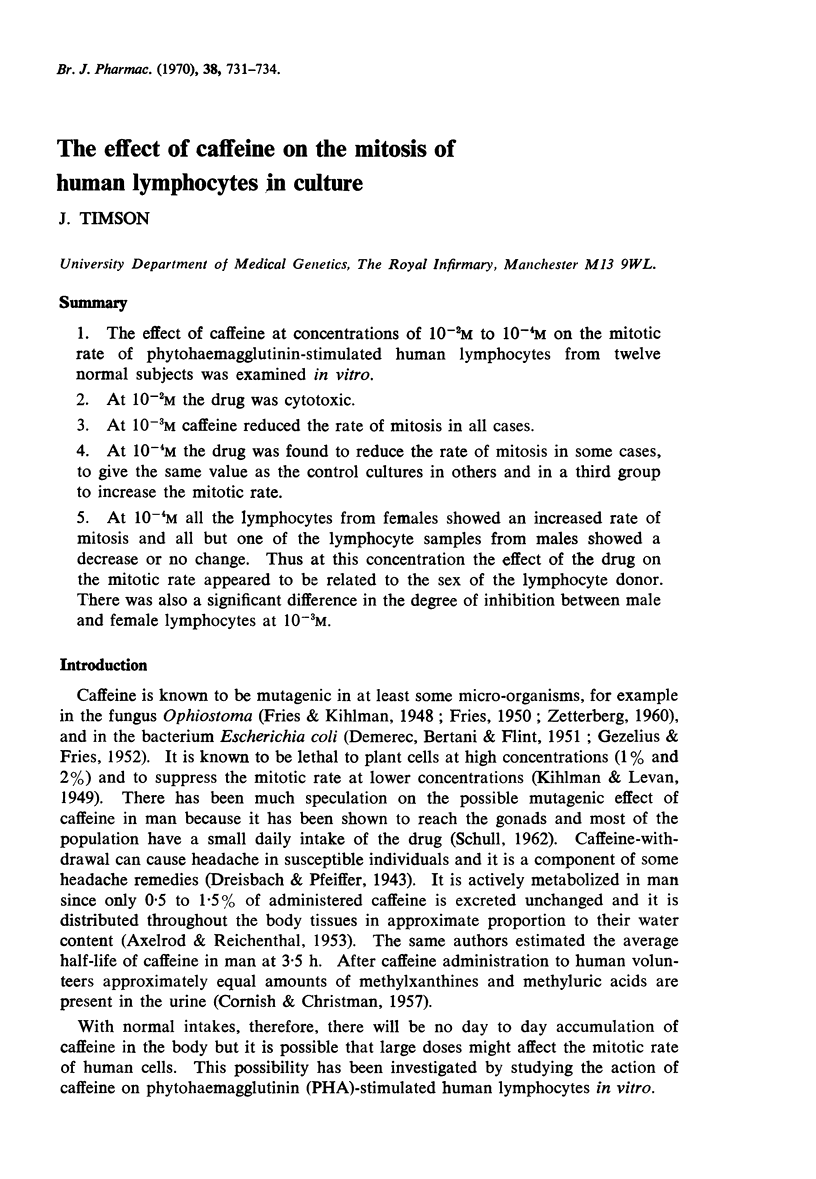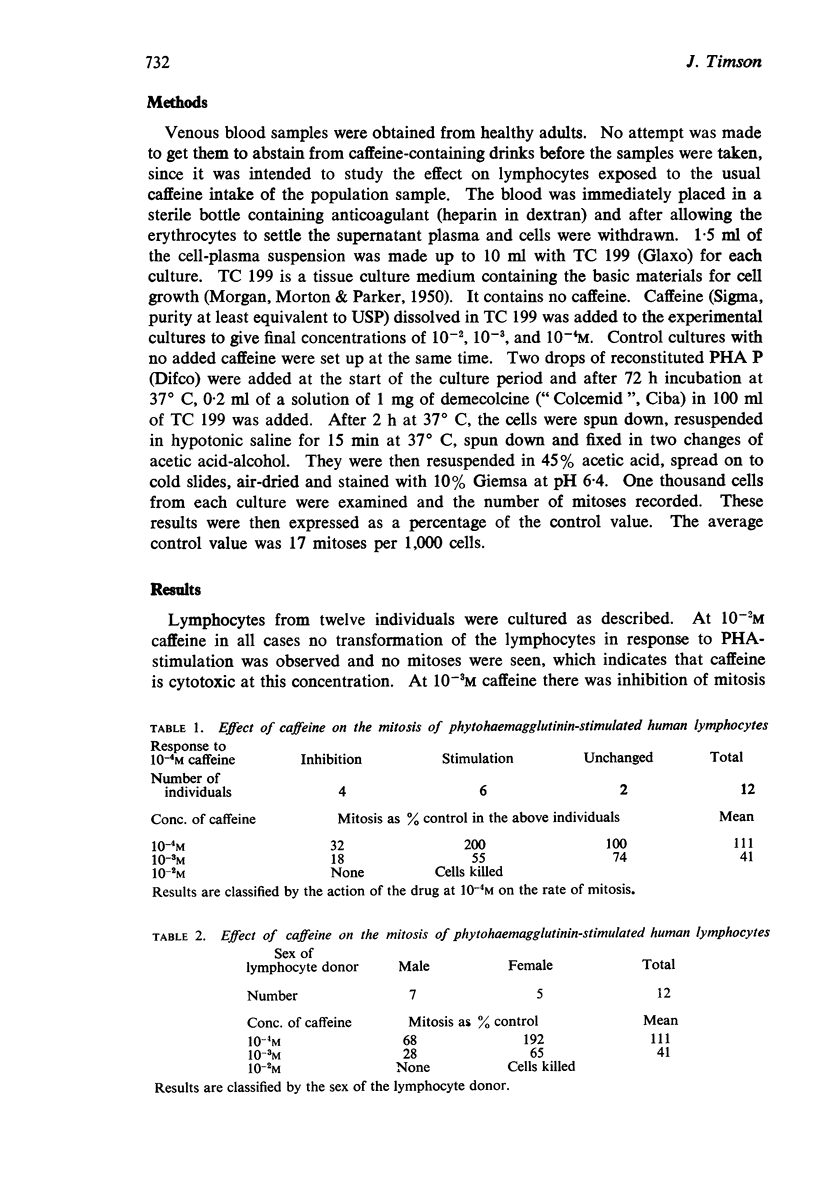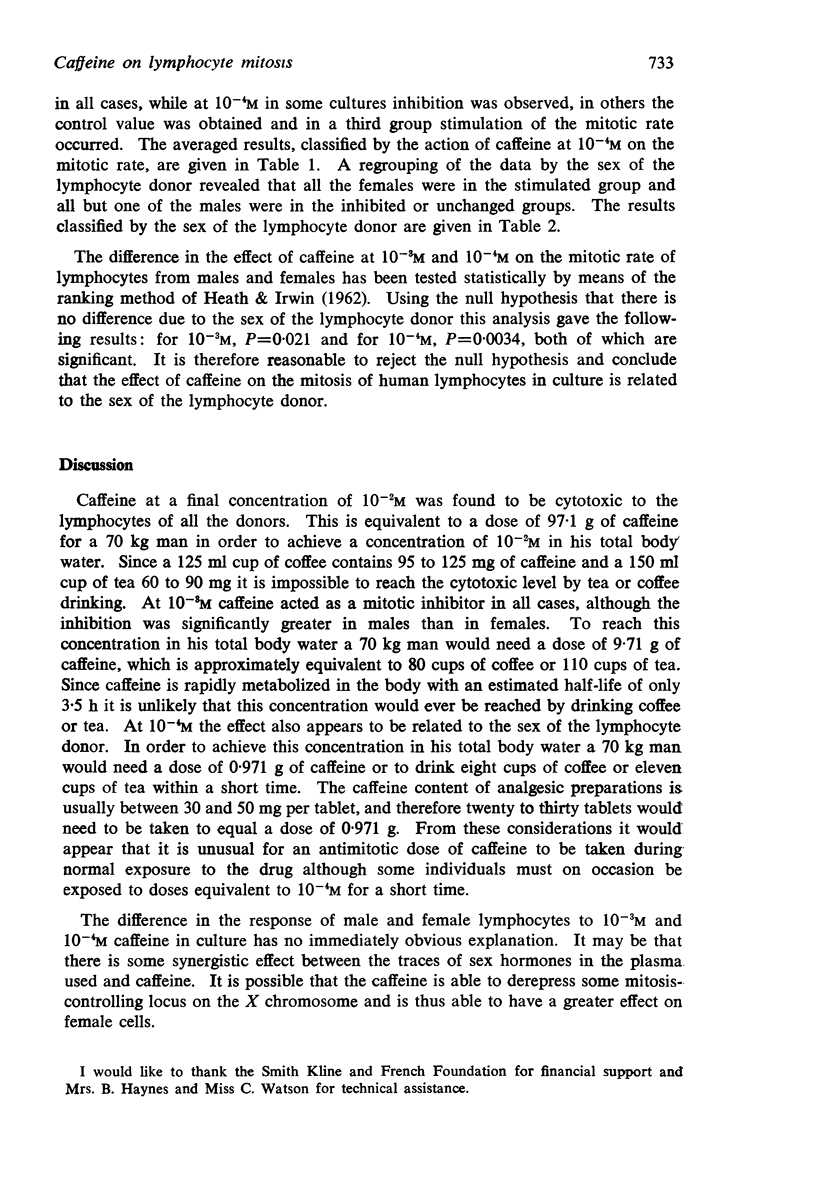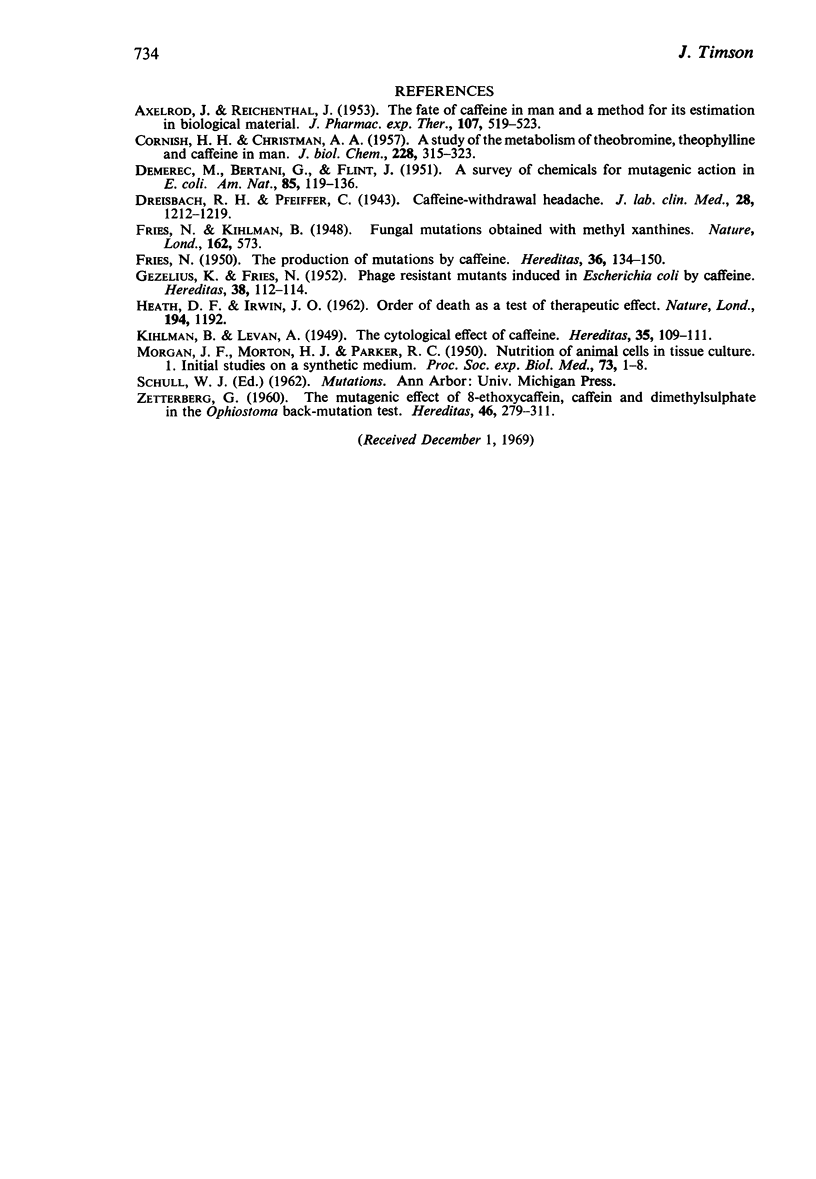Abstract
1. The effect of caffeine at concentrations of 10-2M to 10-4M on the mitotic rate of phytohaemagglutinin-stimulated human lymphocytes from twelve normal subjects was examined in vitro.
2. At 10-2M the drug was cytotoxic.
3. At 10-3M caffeine reduced the rate of mitosis in all cases.
4. At 10-4M the drug was found to reduce the rate of mitosis in some cases, to give the same value as the control cultures in others and in a third group to increase the mitotic rate.
5. At 10-4M all the lymphocytes from females showed an increased rate of mitosis and all but one of the lymphocyte samples from males showed a decrease or no change. Thus at this concentration the effect of the drug on the mitotic rate appeared to be related to the sex of the lymphocyte donor. There was also a significant difference in the degree of inhibition between male and female lymphocytes at 10-3M.
Full text
PDF



Selected References
These references are in PubMed. This may not be the complete list of references from this article.
- AXELROD J., REICHENTHAL J. The fate of caffeine in man and a method for its estimation in biological material. J Pharmacol Exp Ther. 1953 Apr;107(4):519–523. [PubMed] [Google Scholar]
- CORNISH H. H., CHRISTMAN A. A. A study of the metabolism of theobromine, theophylline, and caffeine in man. J Biol Chem. 1957 Sep;228(1):315–323. [PubMed] [Google Scholar]
- HEATH D. F., IRWIN J. O. Order of death as a test of therapeutic effect. Nature. 1962 Jun 23;194:1192–1192. doi: 10.1038/1941192a0. [DOI] [PubMed] [Google Scholar]
- MORGAN J. F., MORTON H. J., PARKER R. C. Nutrition of animal cells in tissue culture; initial studies on a synthetic medium. Proc Soc Exp Biol Med. 1950 Jan;73(1):1–8. doi: 10.3181/00379727-73-17557. [DOI] [PubMed] [Google Scholar]


